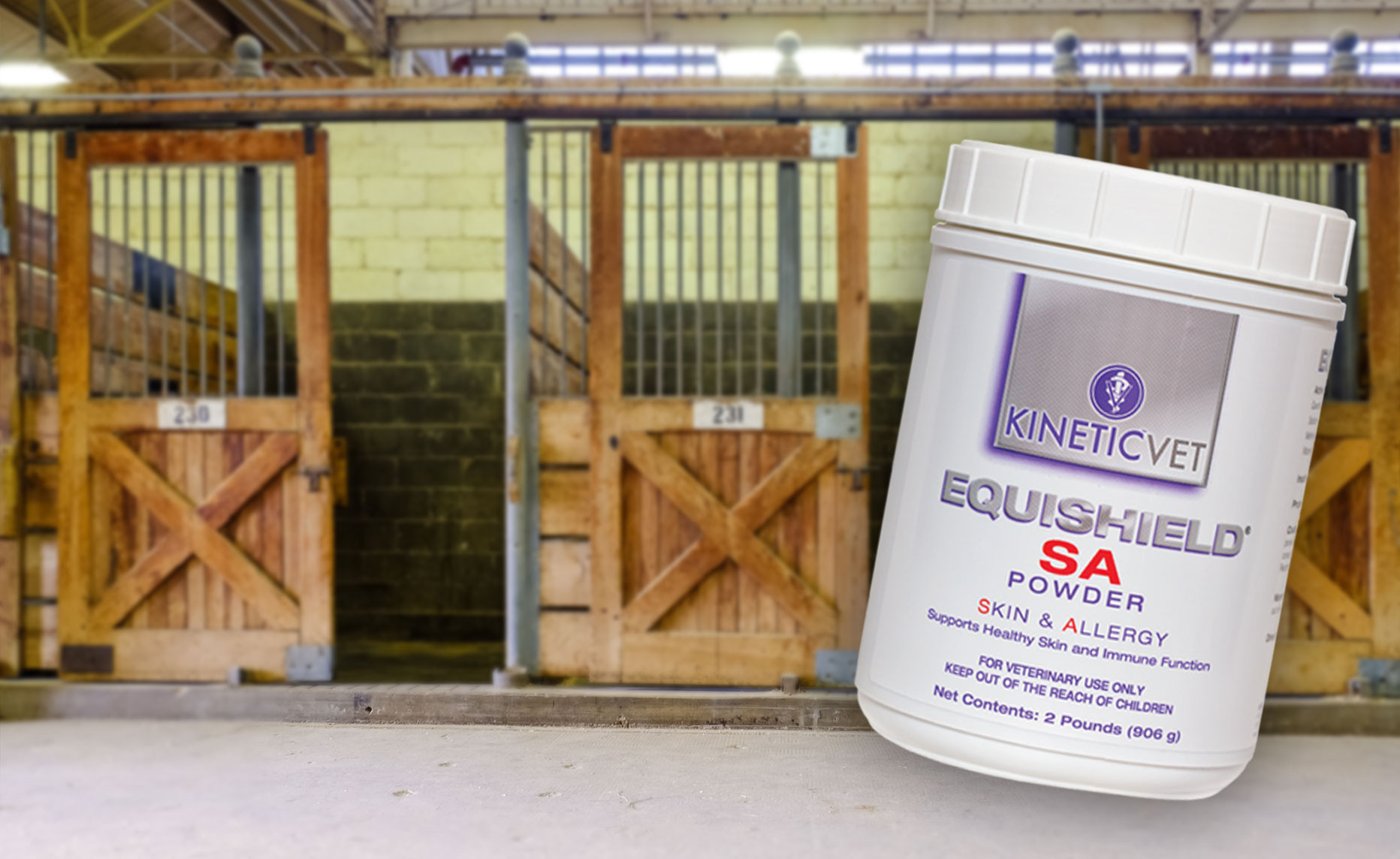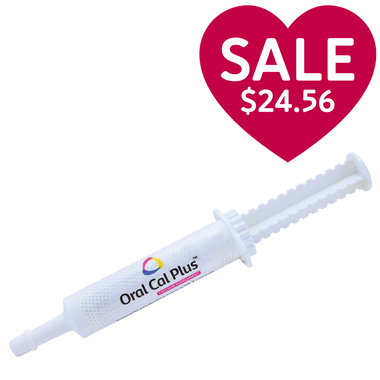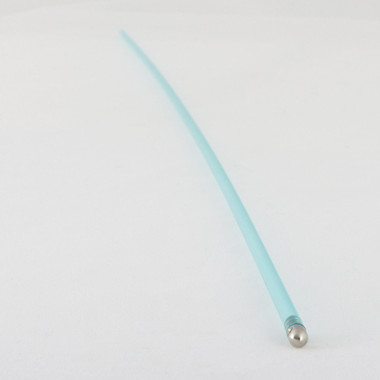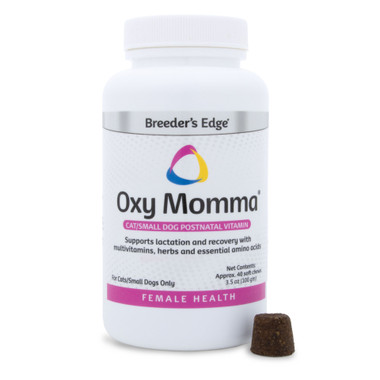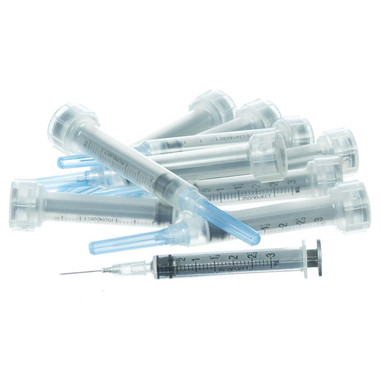Managing Allergies in Horses: Understanding Skin’s Role in Equine Allergies
Estimated 0 min read
Allergic reactions in horses can present a significant challenge to equine health, affecting both performance and overall well-being. These reactions, which can be triggered by a variety of environmental, dietary, and insect-related allergens, often result in inflammation, discomfort, and secondary infections. Effective management of these allergic responses requires a multifaceted approach that addresses both the immune system’s overreaction and the physical symptoms associated with these conditions. EquiShield® SA offers a clinically-backed solution designed to support horses suffering from allergies. This supplement’s unique blend of ingredients provides an integrated approach to managing allergic reactions, ensuring optimal equine health outcomes.
The Immune Response and Common Allergens in Horses
Horses, like humans, rely on their immune systems to protect them from harmful invaders. However, in some cases, the immune system overreacts to harmless substances, such as environmental allergens. This hypersensitive response results in inflammation, itching, and other symptoms associated with allergic reactions. The most common types of allergies in horses include:
- Environmental Allergies: These occur due to airborne allergens such as pollen, dust mites, and mold.
- Insect Bites: Many horses are allergic to insect bites, particularly from flies or mosquitoes.
- Food Allergies: Although less common, horses can develop allergic reactions to certain grains or other ingredients in their diets.
Symptoms of allergies in horses can range from mild to severe and may include respiratory issues such as coughing, nasal discharge, or wheezing, as well as skin conditions like hives, rashes, or intense itching.
Understanding the Role of Skin in Allergic Reactions in Horses
The skin is the largest organ in a horse’s body and serves as a primary barrier against external threats, including allergens. In allergic horses, this barrier can become compromised, leading to increased permeability and sensitivity. Common allergic reactions, such as hives, pruritus (itching), or contact dermatitis, are often manifestations of the skin’s inflammatory response to allergens. Inflammation can lead to further skin damage, which may result in infections or secondary conditions. Maintaining healthy skin is crucial for horses with allergies, as compromised skin can exacerbate the symptoms of allergic reactions. Ensuring that the skin remains hydrated, balanced, and free from excessive inflammation is critical to managing these conditions effectively.
Managing Allergies in Horses
Effective management of allergies in horses often involves a combination of environmental control, proper nutrition, and targeted supplementation. By reducing exposure to known allergens and supporting the horse's immune system, veterinarians and equine caretakers can help mitigate allergic reactions.
One of the most effective ways to address allergy-related symptoms in horses is through nutritional supplementation that targets the immune response and supports overall skin health.
EquiShield® SA: A Solution for Horse Allergy Relief
EquiShield® SA is a specifically formulated supplement designed to address allergic reactions in horses, providing a holistic approach to managing symptoms. Its powerful blend of ingredients works synergistically to reduce the body’s immune response to common allergens while promoting overall skin health.
Key Ingredients and Their Benefits:
- Quercetin: A natural antihistamine, quercetin helps stabilize mast cells, preventing the release of histamine, which plays a central role in allergic reactions. By inhibiting histamine release, quercetin helps reduce symptoms such as itching and inflammation.
- MSM (Methylsulfonylmethane): MSM is known for its anti-inflammatory properties and its ability to support joint and connective tissue health. In the case of allergies, MSM helps reduce the inflammatory response, offering relief from swelling and irritation caused by allergens.
- Hyaluronic Acid (Sodium Hyaluronate): This powerful ingredient plays a crucial role in maintaining skin hydration. By promoting moisture retention, hyaluronic acid helps keep the skin supple and less prone to irritation, a common issue in allergic horses.
- Vitamin E: A potent antioxidant, vitamin E helps neutralize free radicals in the body that can contribute to inflammation. By reducing oxidative stress, vitamin E supports the overall health of the horse’s skin and immune system.
- Ground Stabilized Flaxseed: Rich in omega-3 fatty acids, flaxseed helps modulate the immune response, reducing the severity of allergic reactions. It also contributes to improved skin condition by promoting hydration and reducing inflammation.
- Rice Bran: Another antioxidant and anti-inflammatory agent, rice bran further supports the reduction of inflammation and oxidative damage, helping the horse's skin stay healthy and resilient.
How EquiShield® SA Works:
EquiShield® SA Powder offers comprehensive support for horses dealing with allergies by combining these potent ingredients into a convenient, easy-to-administer supplement. Quercetin and MSM work together to alleviate the allergic response, while hyaluronic acid maintains skin hydration, and the combination of vitamin E, flaxseed, and rice bran reduce inflammation and support overall skin health.
This unique formulation provides a holistic approach to allergy management, addressing both the internal immune response and external skin health to ensure long-term comfort and well-being for the horse.
Conclusion
Allergies in horses can significantly impact their quality of life, but with the right management plan, symptoms can be reduced, and overall health can be improved. EquiShield® SA provides an effective, natural solution for alleviating allergy symptoms, offering relief through a powerful blend of ingredients that support immune function, reduce inflammation, and promote skin hydration. By integrating such supplements into a comprehensive care plan, equine practitioners and owners can help horses lead healthier, more comfortable lives, free from the disruptive effects of allergies.

